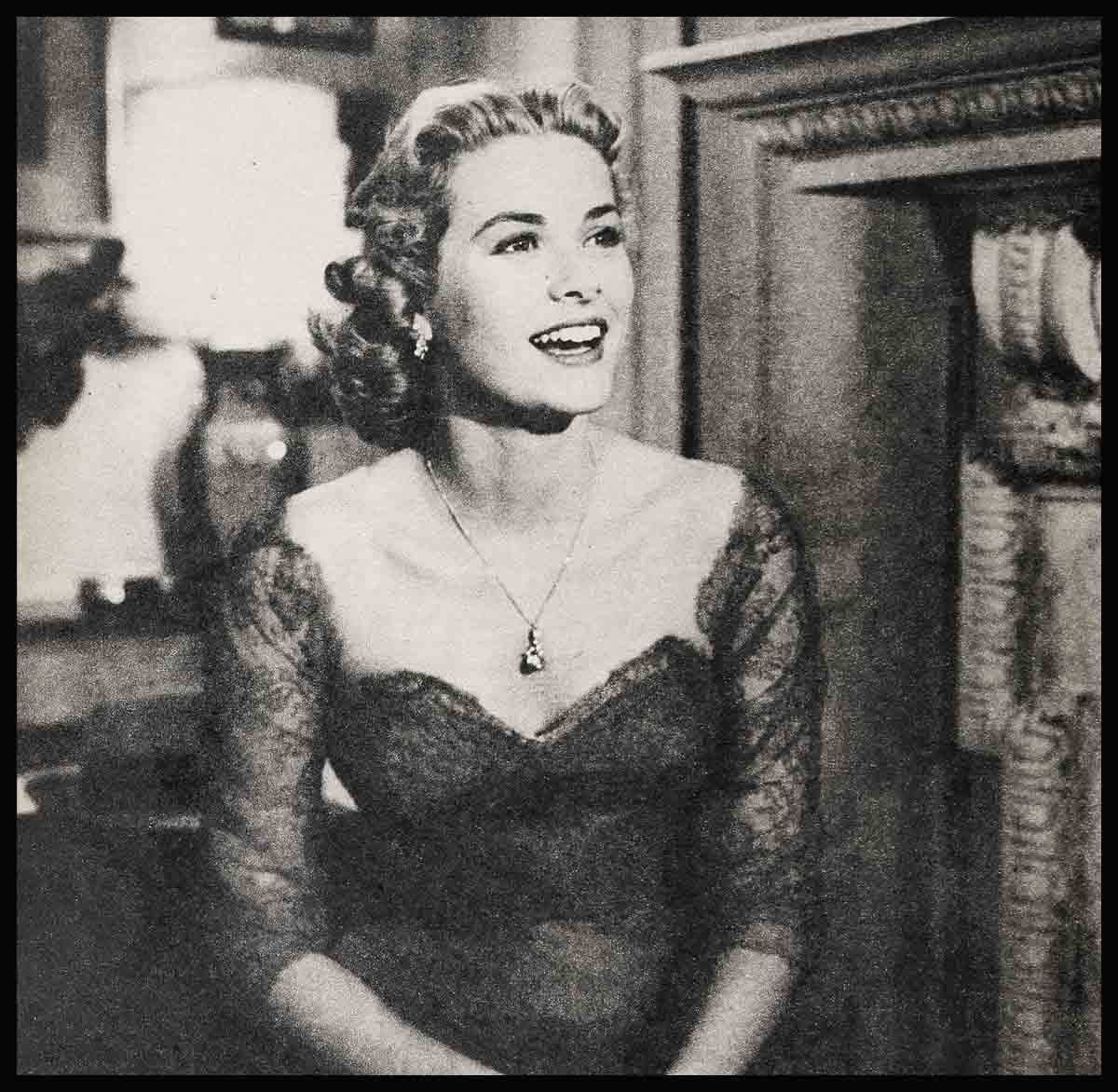
Grace Kelly: Hollywood’s New Garbo?
It would be an over-simplification, in fact an outright injustice, to suggest that Grace Kelly despises Hollywood, yet by her actions she gives every indication that this is so. She just can’t seem to put Hollywood behind her fast enough. The latest incident to give credence to this was her recent hush-hush departure for the East. No sooner was “To Catch A Thief” completed, than the regal Miss Kelly packed her bags and took to her heels. She didn’t even make herself available to the studio for photo layouts and interviews, as is customary even for the most difficult stars.
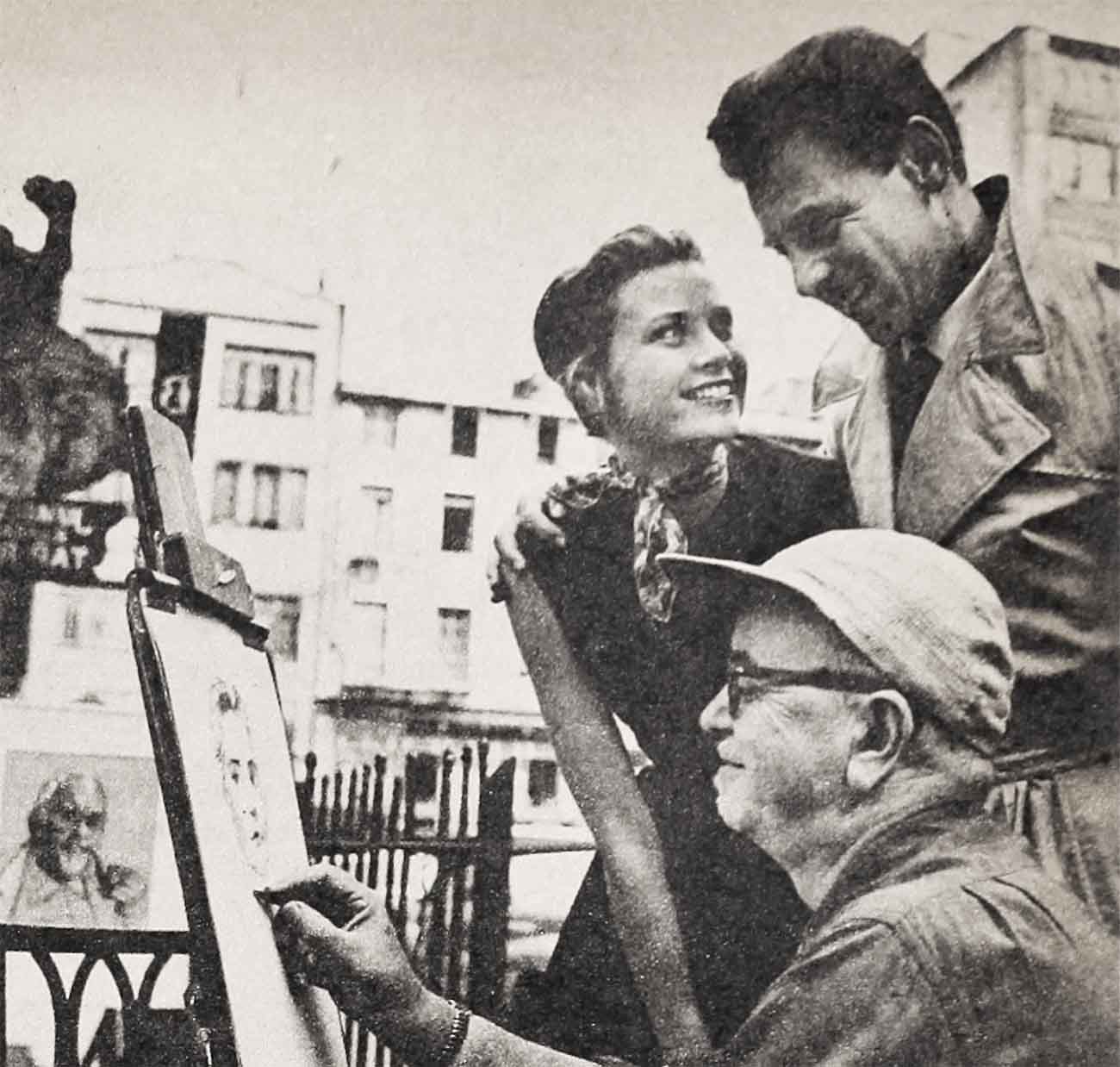
So shrouded in secrecy was her departure that her absence wasn’t discovered until a day or two later, when she was spotted dining at the Colony in New York with Oleg Cassini. Then Grace, who despises being stared at, realized with a start that even in New York she could no longer revel in her fondly remembered pre-Hollywood anonymity. And it was for this very reason that she had hurriedly left the film capital!
The plain truth is that in Grace Kelly Hollywood has found a new Greta Garbo. Like the immortal Sphinx of the Swedish wastes, Grace wants nothing more passionately than to be alone. Hollywood hasn’t seen an addiction to solitude. the likes of Grace Kelly’s since Garbo uttered her deathless “I tank I go home.”

By any Hollywood standards, Grace Kelly is an iconoclast, and although the land of magic lanterns frequently is kinder to non-conformists than other strata of society, her particular variance with Hollywood mores is not sitting too well with many of the town’s self-styled mahatmas.
Yes, there is heresy abroad in the community of the wide screen and the short marriage. There is a cult of non-believers who refuse to sink to their knees and join in the orgy of deification which has surrounded the already legendary Miss Kelly—a composed, captivating Philadelphia blueblood who in the brief span of a year has conquered the national imagination as the heroine of seven Grade A flickers and the heroine of at least four Grade A romances which Hollywood historians have not yet been able to classify as fact or fiction.
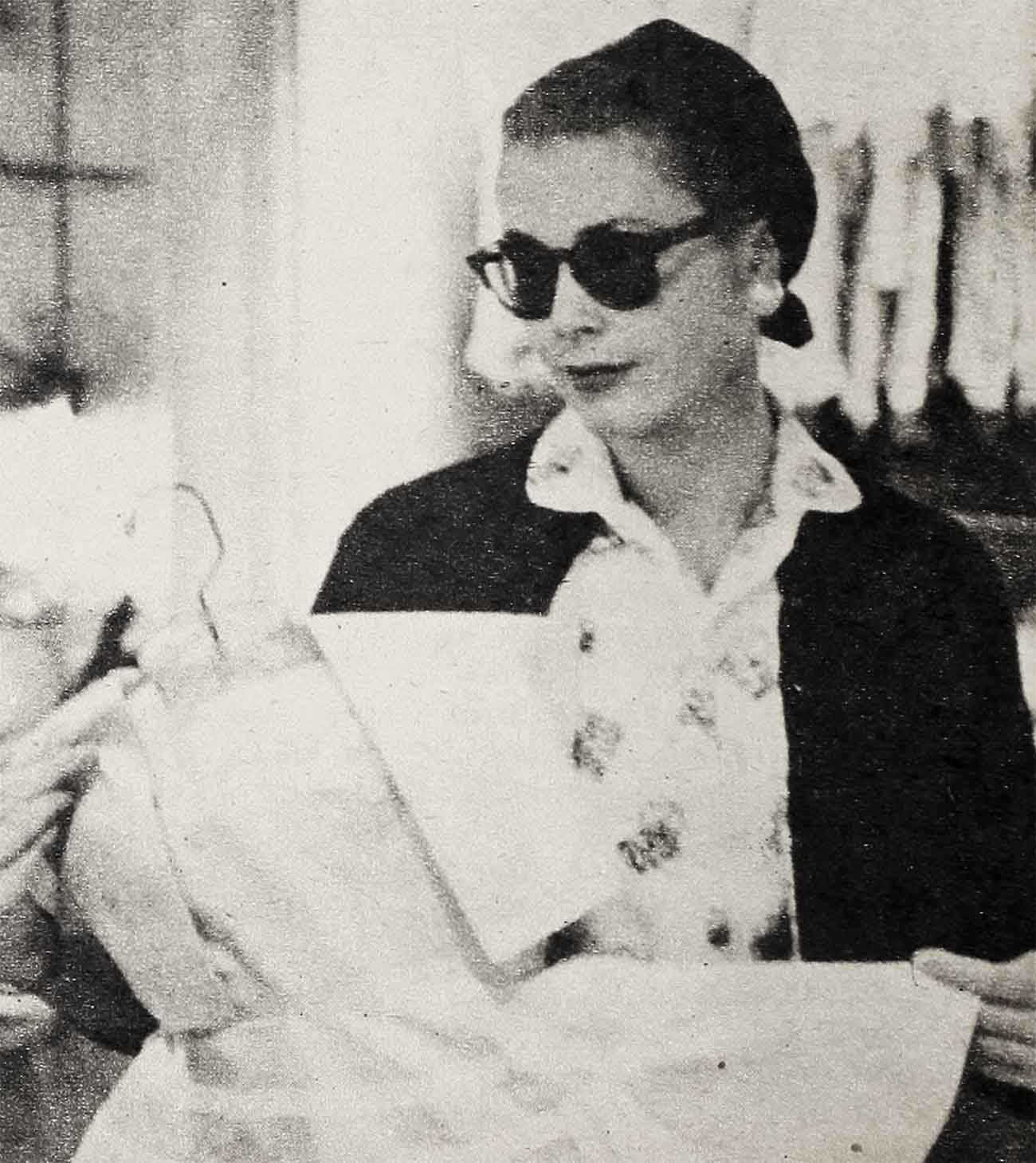
The lingering mystery about the precise depth of Miss Kelly’s widely publicized amours is only part of the growing aura of mystery that attaches to everything else she does, many of the things she says, and almost all of the things she thinks. In a pressure-cooker rise to fame perhaps without precedent in all the flamboyant annals of Hollywood, the glacial beauty from the City of Brotherly Love has become—without so much as bending her aristocratic pinky to woo such a furore—the movie colony’s most talked about femme fatale since Ingrid Bergman told a shocked and sanctimonious world to go jump in the lake while she repaired to Italy to bear a child for Roberto Rossellini.
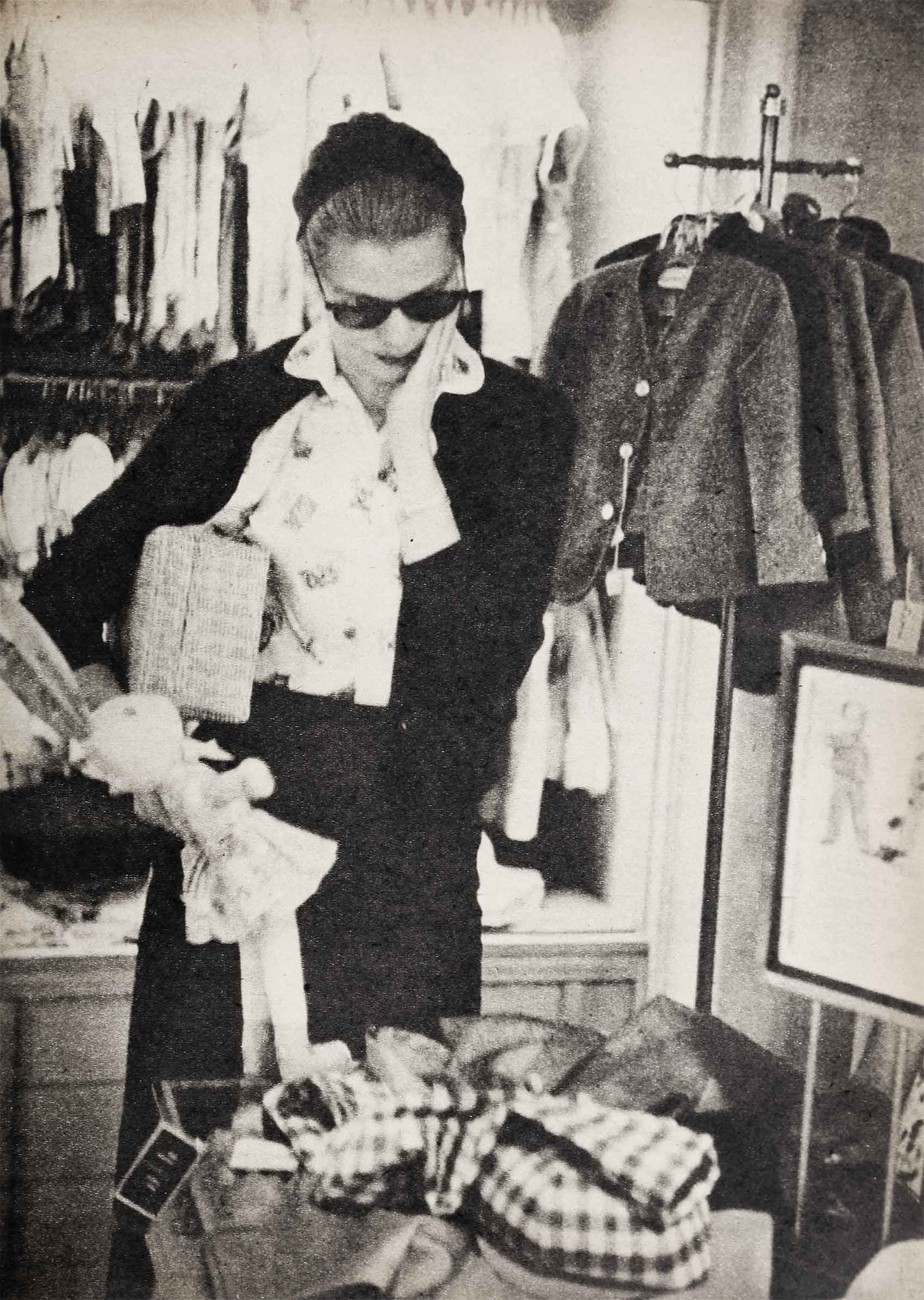
Grace Kelly arrived in Hollywood with a built-in horror of the spotlight and a lifetime passion for privacy. Rather than a calculated campaign to generate mystery, her aversion to publicity and crowds stems largely from innate shyness and a stern concept of personal dignity.
With a refreshing absence of false modesty, Grace suggests—and to all intents and purposes, already has proved—that she can play anything on the screen, but she refuses to play anything but herself off the screen. This can be a dangerous luxury in a community where so many actresses turn in their best performances away from the sound stages.
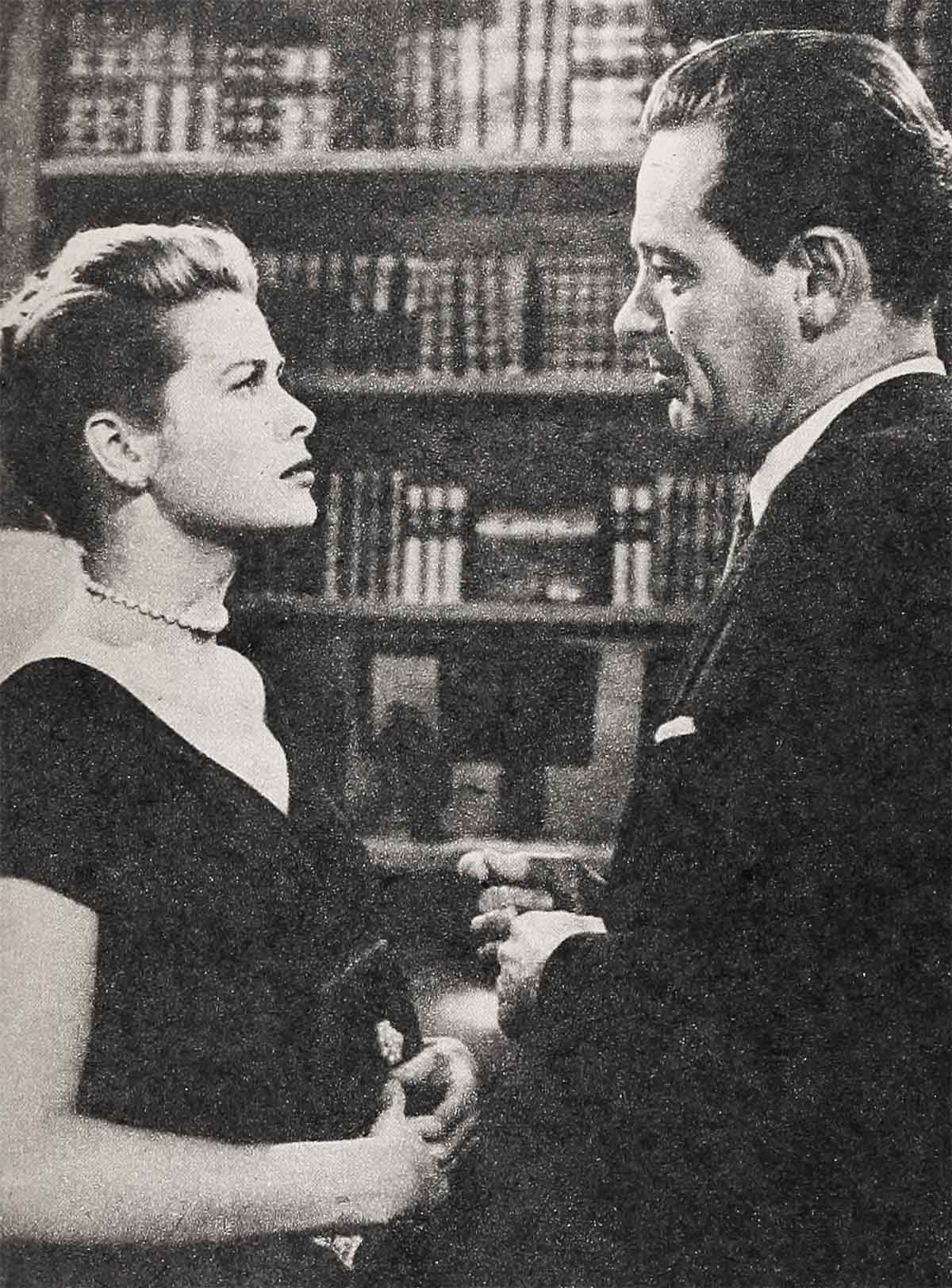

Without doubt, Grace Kelly’s distaste for publicity has contributed to the impression that she is another Garbo. She expects to be left alone when she is dining in a restaurant or dancing at a night club, but more than anything else, she evidently would like to be left alone by the press.
This is not because she is anti-social or anti-press, however. It’s true that one Fableville press agent told me, “She not only doesn’t say thanks for her buildup, she doesn’t even cooperate most of the time.” On the other hand, Kelly’s allergy to publicity is seen in an entirely different light by burly Bill Perlberg, producer of “Country Girl.”
“Sure, Grace has refused to do leg art,” Perlberg conceded. “It’s all right for girls in that field, but not for her. I don’t remember Greta Garbo ever doing leg art. It’s repugnant to Grace.

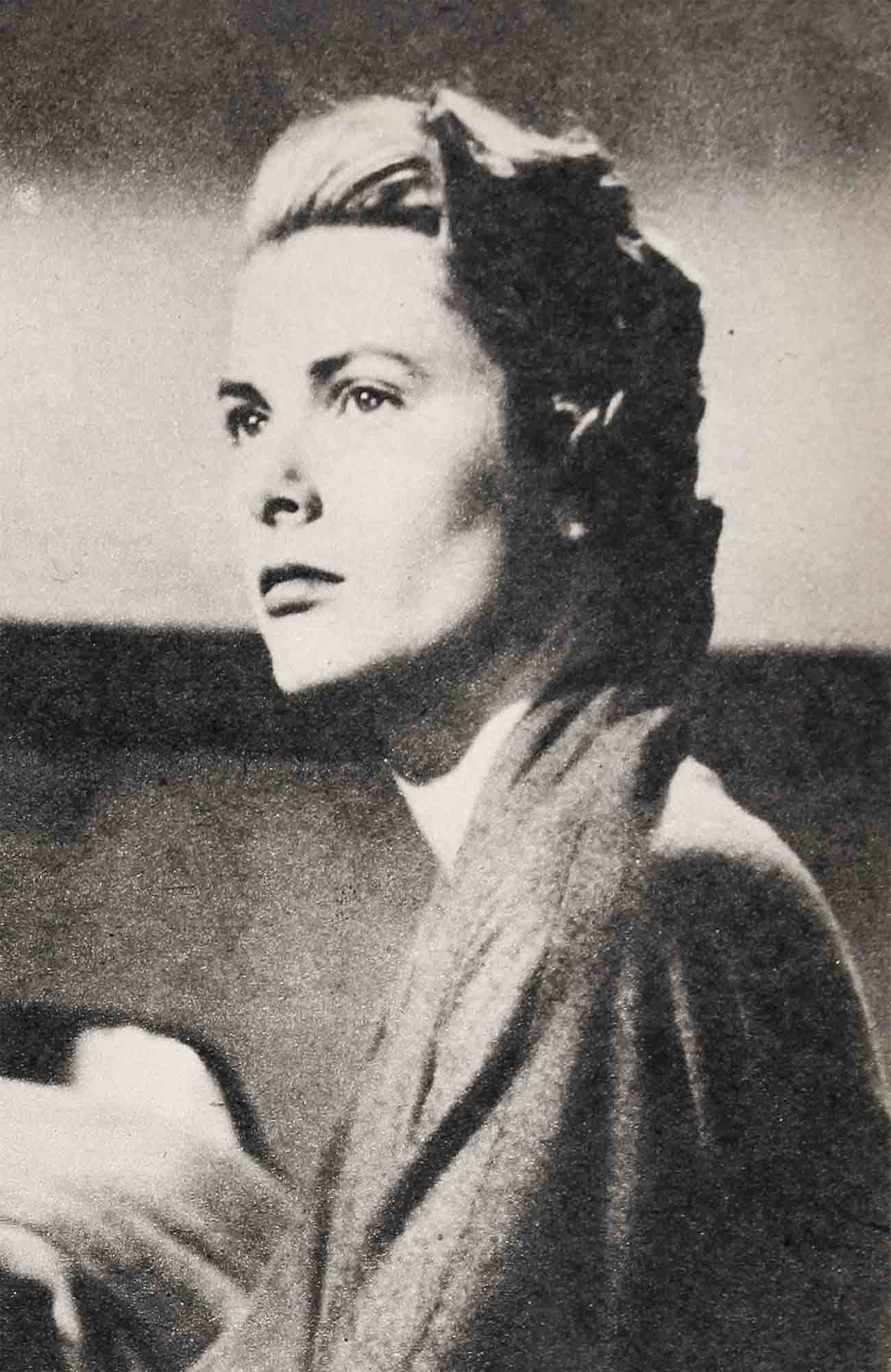
“She also deplores the fact that she’s been over-publicized,” he pointed out. “She thinks over-exploitation and publicity have hurt her rather than helped her. She also deplores over-anxious publicity men who coin phrases and attribute them to her.”
But beyond the occupational hazards of excessive fanfare, Grace Kelly shuns the spotlight for more basic reasons—psychological reasons cutting to her way of life. She has been reared on the doctrine that her personal life is a sacred thing, and since she respects the private lives of others, she does not consider it unreasonable to demand that they respect the sanctity of her private life. She doesn’t regard it as inconsistent or highhanded to welcome the acclaim of the public on the screen, and to resent being leered at and pulled at in the flesh.
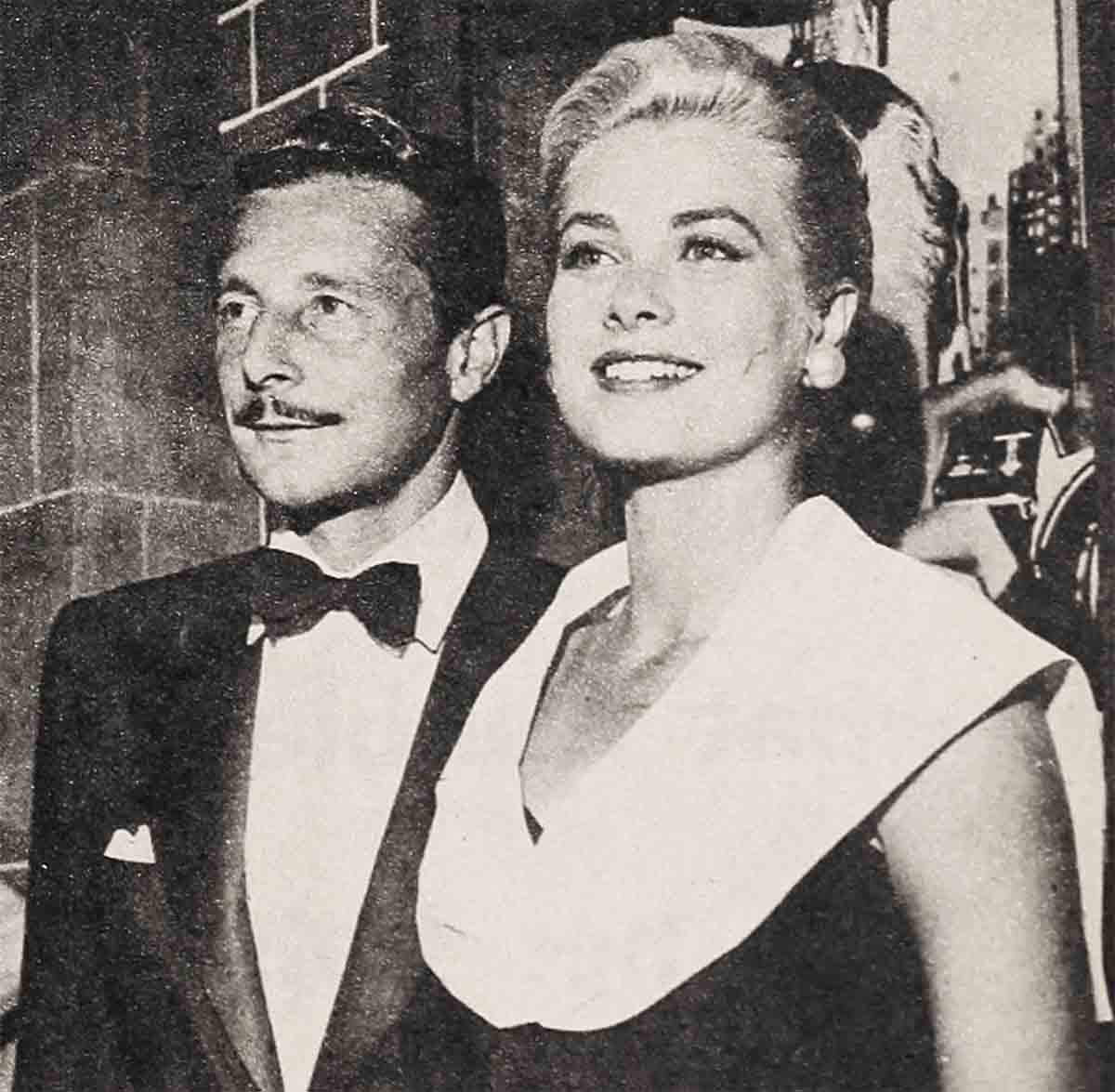
She is dedicated to her art, rather than to her public, and to Grace—as well as to those who ardently champion her—this is not snobbery, but the secret of why she has the potential of greatness as an actress. She stoutly maintains, and those closest to her support her in this contention, that she does like people. She merely happens to like them in small doses, taken slowly. That, her supporters point out, is her nature. Since it is honest, they hold that it could not be snobbery because snobbery is an affectation.
Even if she had been disposed to relax her natural reluctance to share her private life with her public, her early encounters with movieland gossip columnists succeeded only in reinforcing her determination to bolt the doors on her personal affairs.
She was devastated by gossip items that fanned her friendship with Clark Gable and Ray Milland into romantic proportions, and even cast her in the role of a homewrecker when Milland was separated from his wife. She denounced these tidbits as slanderous untruths and inexcusable exaggerations, and it came as priceless irony when one syndicated keeper of Hollywood’s morals who had been critical of Grace’s alleged romantic excursions, saw fit to advise Miss Kelly in-print:
“If she’ll just use the cautious signal in guiding her private life, she’ll not miss out on stardom.”
Grace is not only cautious about protecting her privacy, she is adamant on the subject, but not, as might be suspected, to the point where it has become a psychosis.
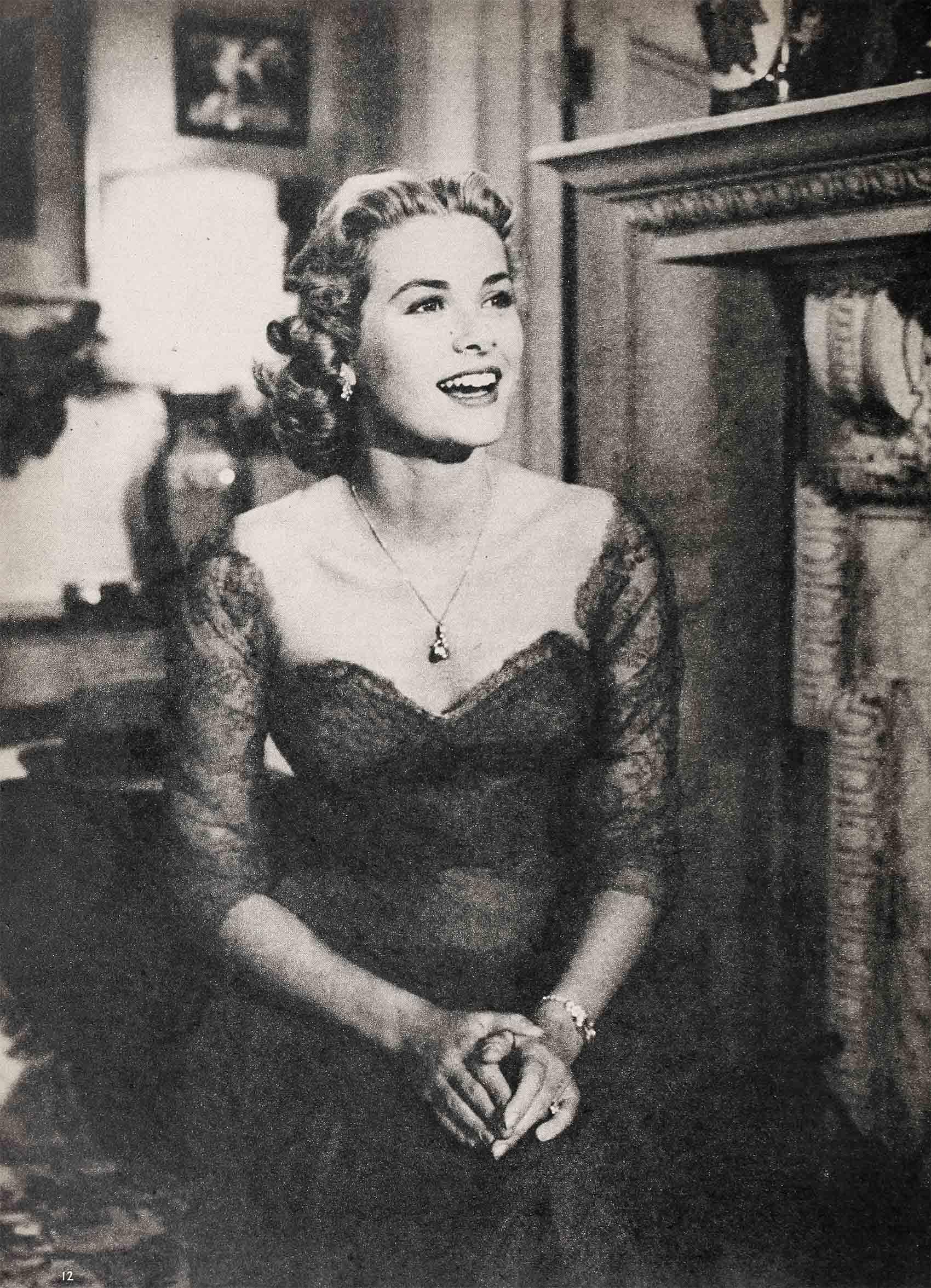
I asked Grace why, feeling as strongly as she does about having her privacy violated, she wanted to be a movie actress, and I stumbled upon a vein of the wry Kelly wit.
“I like to make money,” she deadpanned. “It is very gratifying to make money yourself.”
She had no trouble convincing me she meant it when she went on to tell me:
“I’m very honest with myself. I know my good points and my bad.”
Having been adequately briefed by others on her good points, I expressed interest in her bad points.
“Those,” she smiled firmly, “I’m not going to tell.”
As unorthodox as her attitude toward Hollywood has A been, even those who are annoyed at her reluctance to lend herself to any further publicity binges are hesitant about questioning her wisdom.
“She could be right,” one puzzled veteran of the Hollywood drum beating wars mused. “She’s a canny dame.”
To this proposition, director Alfred Hitchcock, another of Grace’s ardent boosters, lent terse support. Although he himself predicts screen greatness for Kelly, he refuses to be overly impressed by all the commotion made over her devotion to her craft.
“She’d be a fool not to be dedicated,” he told me on the set of “To Catch A Thief.”
A fool then, Grace Kelly is not. Nor a snob, nor a prima donna. As to those whom she might unwittingly have rubbed the wrong way, she has the grace—and the sense—to be philosophical.
“I’ve been so busy working,” she explained to me, “that I haven’t really realized what other people are saying.”
Even if she does, the odds are that nothing she may happen to overhear will persuade Hollywood’s new Garbo to change her views. As long as her performances continue to be of the same high calibre, her legend will grow, and the palace guards will mumble, but the peasants, being pretty sensible people, will gladly go on according her acclamation—as they did Garbo.
THE END
—BY BILL TUSHER
It is a quote. SCREENLAND MAGAZINE MARCH 1955




